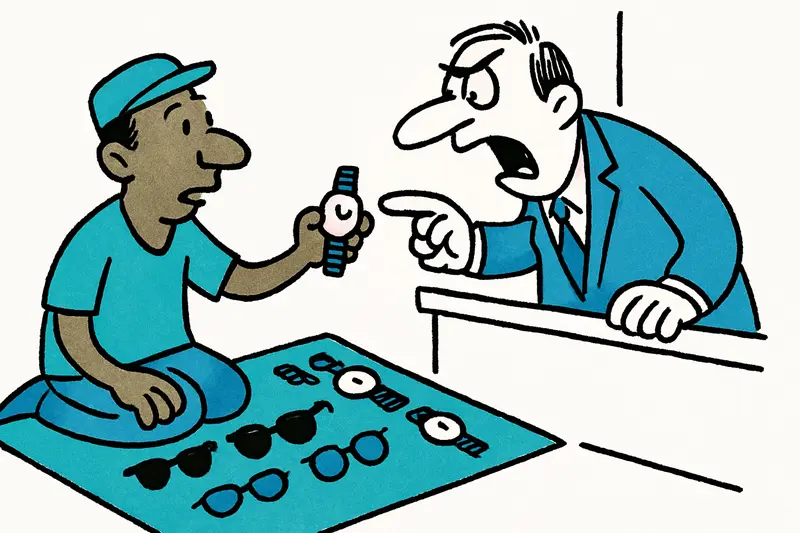Street vendors with sunglasses and bags define many corners of Palma, but the consequences for shop owners, order, and the island's image go beyond a quick deal.
When a Quick Sale Destroys the Business
Sooner or later every tourist stumbles upon the blankets at the Paseo Marítimo or the improvised stalls beneath the cathedral. Sunglasses for ten, bags for twenty, watches that gather dust after two days. The pattern is recognizable: For the people standing there, it's often an attempt to make ends meet somehow. For the permanently registered shopkeepers on Calle Sant Miquel or at the Plaza Mayor, it is an existential threat.
Those who pay rent, pay taxes, and employ staff lose customers to the fast, untaxed offering on the street. And that's not only an economic problem: It undermines trust in the rules that uphold our city. When two standards apply — one for street vendors, another for organized pickpockets or noise-makers — then in the end the credibility of all authorities suffers.
Selective Inspections and the Feeling of Injustice
In the early morning hours you sometimes see nimble police squads rolling up blankets and confiscating goods. Good — the laws apply. But especially in the evenings, when groups along Playa de Palma are loud or in the old town pickpocketing is reported, there is often a lack of presence. A resident in La Lonja recently told me: It feels as if you only strike where the image looks good for cameras. A sharp observation, and not entirely unfounded.
The problem is multifaceted: it concerns work and poverty, organized schemes, tourist behavior, and the island's self-image. Those who respond only with raids fail to see that the street offering has long been part of a system — with intermediaries, boat transfers, and outlets in courtyards. A morning raid is not enough against these structures.
What Would Be Credible
An effective concept would connect several levels: visible, regular checks where the problems are gravest; clear sanctions against organized structures; but also social work and legal alternatives for people who otherwise know only street selling. And very importantly: communication that explains why certain measures are necessary — instead of giving the impression that one only wants to hit a few 'easy' targets.
I'm not naive: there won't be an easy solution. But if Palma and the main locations want to stay credible, rules must apply uniformly. Otherwise the feeling remains: it's easier to take away someone's cheap sunglasses than to tackle the big problems. And that helps neither the vendors nor the shopkeepers nor the guests who expect a fair island.
Similar News

Housing Becomes a Decision: Family from Binissalem Moves to the Mainland
Rent prices on Mallorca are forcing more locals to leave their homeland. A family portrait from Binissalem shows how qui...

From Reality Star to Singer: Chanelle Wyrsch and Her New Path to the Mallorca Stage
Chanelle Wyrsch speaks openly about TV successes, weight loss, and her plan to finally take music seriously. A conversat...

Joan Aguiló: Portraits, Walls, and the Real Mallorca
A local who turns house walls into storytellers: Joan Aguiló paints life-size portraits, organizes facade festivals, and...

Kristina Bach Returns: Mallorca's Songwriter Back on TV
After years of quiet on the island, Kristina Bach dares to step back into the limelight: a TV appearance at HeidiFest an...

Red Carpet, Gold Chains and Pool Party: The Robens Celebrate in Ses Palmeres
Caro and Andreas Robens invited to a theme party at their newly renovated house in Ses Palmeres. About 70 guests, a red ...
